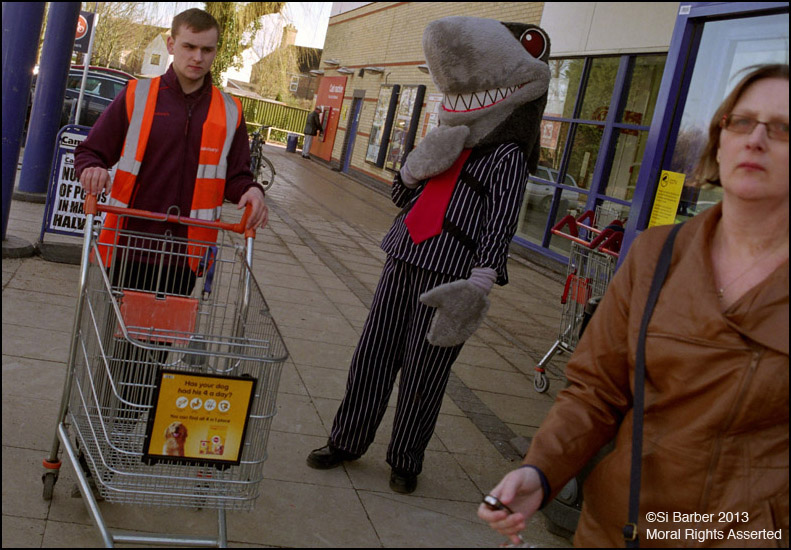Last week I was fortunate enough to visit one of the UK's fastest growing businesses. Across the UK they have 325 depots, and in the city of Norwich alone they have just opened their fifth branch.
In a time of double dip recession you might think that this was something to celebrate, perhaps with a visit from the local MP to cut a ribbon, but you'd be wrong because these are foodbanks and they are a testament of successive government's inability to provide the economic and social conditions that enable people to provide for themselves.
Hunstanton, Norfolk
Foodbanks are not on the high Street. No-one wants to be seen taking handouts in the full glare of people they might know. Instead they're often tucked away on anonymous trading estates or secondary retail areas within walking distance of the town and city centres.
Social stigma is a powerful motivational force.
Baby food on the shelves at a Norwich foodbank.
Foodbanks are intended to be an emergency resource for immediate relief of hunger and provide three days worth of balanced food. They are not intended to be part of the benefits system, but as the BBC has reported Job Centres and benefit advisers are increasingly people referring directly to them because the claimants cant make the money go far enough.
Boxes being packed with three days of nutritionally balanced food by workers at the Trussell Trust.
In his 1992 publication The End of History, the economist Francis Fukuyama said that capitalism as we know it in the UK only has a future where the majority of the population can participate in its benefits.
The Soviet Union he said served as a brake on the excesses of the market, providing the theoretical possibility of an alternative economic system should capitalism become too unruly. With Communism gone he speculated that the Western economies might become de-stabilised and anarchic, emboldened by the moral victory of free enterprise.
You can today go along to any high street today to see examples of what he meant by anarchic capitalism - payday loans companies charging huge amounts of interest on unsecured loans. The one in the picture below is 1410% APR. That means if you borrowed £100, at the end of the year you would owe £1410. The Guardian recently reported on a legal money lender charging 16 million percent. An unsecured loan from a high street bank is usually around 9%.
Payday loans company in King's Lynn
Payday loans firms are businesses specifically designed to exploit the desperate. For some these are the last resort before the loan shark. The payday loans companies may harass you with phone calls and letters, but at least they don't come round your house late at night and smash your windows.
But despite knowing the dangers some people still go to loan sharks. Sometimes out of ignorance or because of the anonymity they apparently offer. There are no credit checks or employer references and the sharks themselves are often neighbours.
Like Foodbanks they're not on the high street. No one you might know will see what you're up to.
Illegal lending is now such a problem in some parts of the UK that councils, housing associations and police have set up initiatives and reporting hotlines in an effort to educate the public.
Like Foodbanks they're not on the high street. No one you might know will see what you're up to.
Illegal lending is now such a problem in some parts of the UK that councils, housing associations and police have set up initiatives and reporting hotlines in an effort to educate the public.
Even judged by it's own standards the Government's austerity policies to reduce the debt and the deficit are not working. It now looks like George Osborne will be forced to borrow more than £61 billion than he originally budgeted for. As he turns to the markets to raise the cash he does so in the knowledge that UK's credit rating is likely to be downgraded for a second time, making borrowing at a national level even more expensive and increasing the risk of the country spiralling further into recession as debt repayments hamper any prospect of recovery.






No comments:
Post a Comment